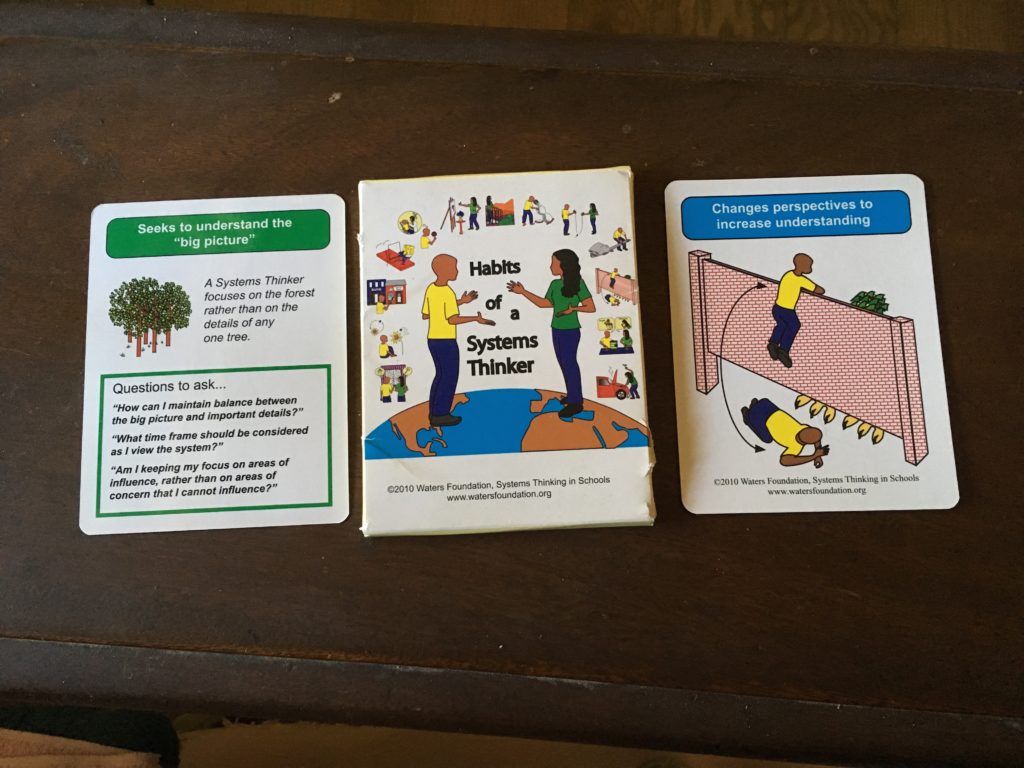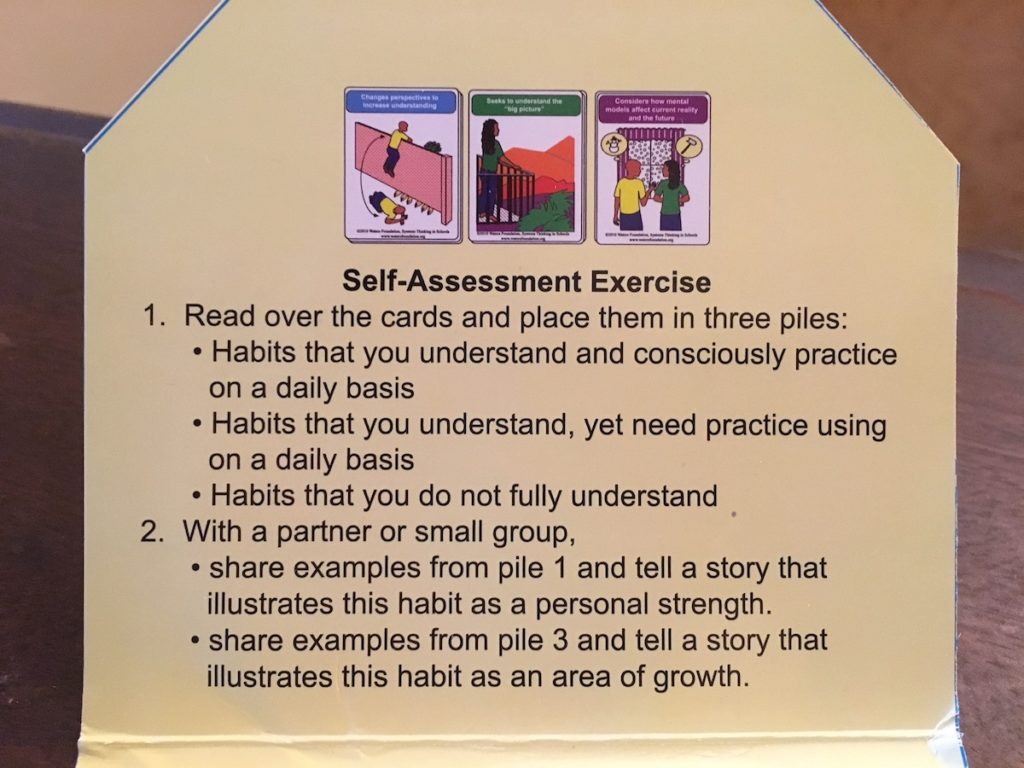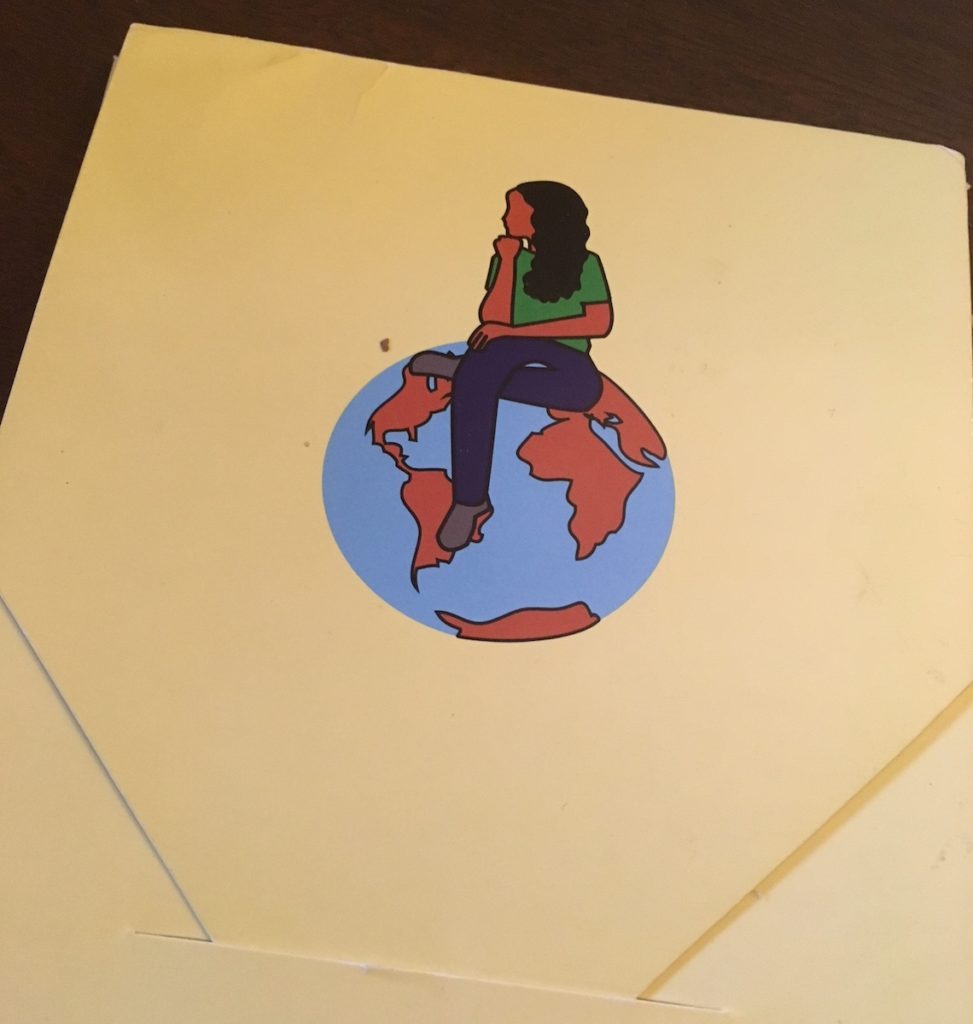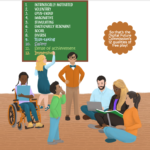
“This article is not meant to be a counsel of despair. If we want to avoid the worst of these bad climate tipping points, we need to activate some positive social and economic tipping points [such as renewable energy] towards what should ultimately be a happier, flourishing, sustainable future for the generations to come.”
~Professor Tim Lenton, lead author of the report Climate Tipping Points—too risky to bet against, 11/27/19
I sat at my reading table this morning to sip some tea. I haven’t sat at #thereadingtable for quite a while. I have to admit, a dramatic fall and a hard bout of the flu has slowed me down by necessity.
The window beside my seat faces a bird bath, and beyond that I see out to a branch of a young oak tree, and then, out across a street below to another steep hillside covered with a wild assortment of trees and shrubs. My favorite tree is some kind of conifer I cannot yet identify…I’m working on my tree ID skills.
In the moments after I sat down, I spotted a Red-breasted Nuthatch (Sitta canadensis) on the oak branch. My mother loved nuthatches. They’re quirky with a talent for upside-down creeping. A strong wind was blowing and across on the other hillside the trees all swayed in a slow dance. I found myself thinking about efforts underway in schools to teach climate science. I thought about the news the day before about the report by a group of scientists on climate tipping points we’ve reached. And my mind turned to the role of storytelling, art, and systems thinking as partners in the science of climate.
The Waters Foundation has created toolsets for systems thinking. One such tool is a small deck of 15 cards titled Habits of a Systems Thinker. I pulled the boxed deck down from my bookshelf above my reading table and opened it up. On this day, I was even impressed by the cardboard packaging which uses every square inch of space for useful information.
I did the self-assessment exercise from the inside flap of the box and created my 3 piles of cards. Consider getting a set of these cards (free Creative Commons licensed one-page version here) and weaving work with the deck into your co-creative conversations about climate science. I love the suggestion in the self-assessment exercise of sharing in a small group examples from pile 1, telling a story illustrating that habit as personal strength, and then sharing examples from pile 3, telling a story about this habit as an area of growth.

I’ll continue with part 2 next week.
Meanwhile, you’ll find the Guardian’s report on the 11/27/19 report here. The article’s opening photo is of the Thwaites glacier in West Antarctica.
And here’s #onefromthearchive – What does a bird bath have to do with a mindful digital life?
As always, thank you for reading. And if you work with the habits deck (or any other systems thinking tools), I’d love to hear from you. I’ll schedule a 30-minute Zoom “systems thinking tea” with you. Just reply to this post.



